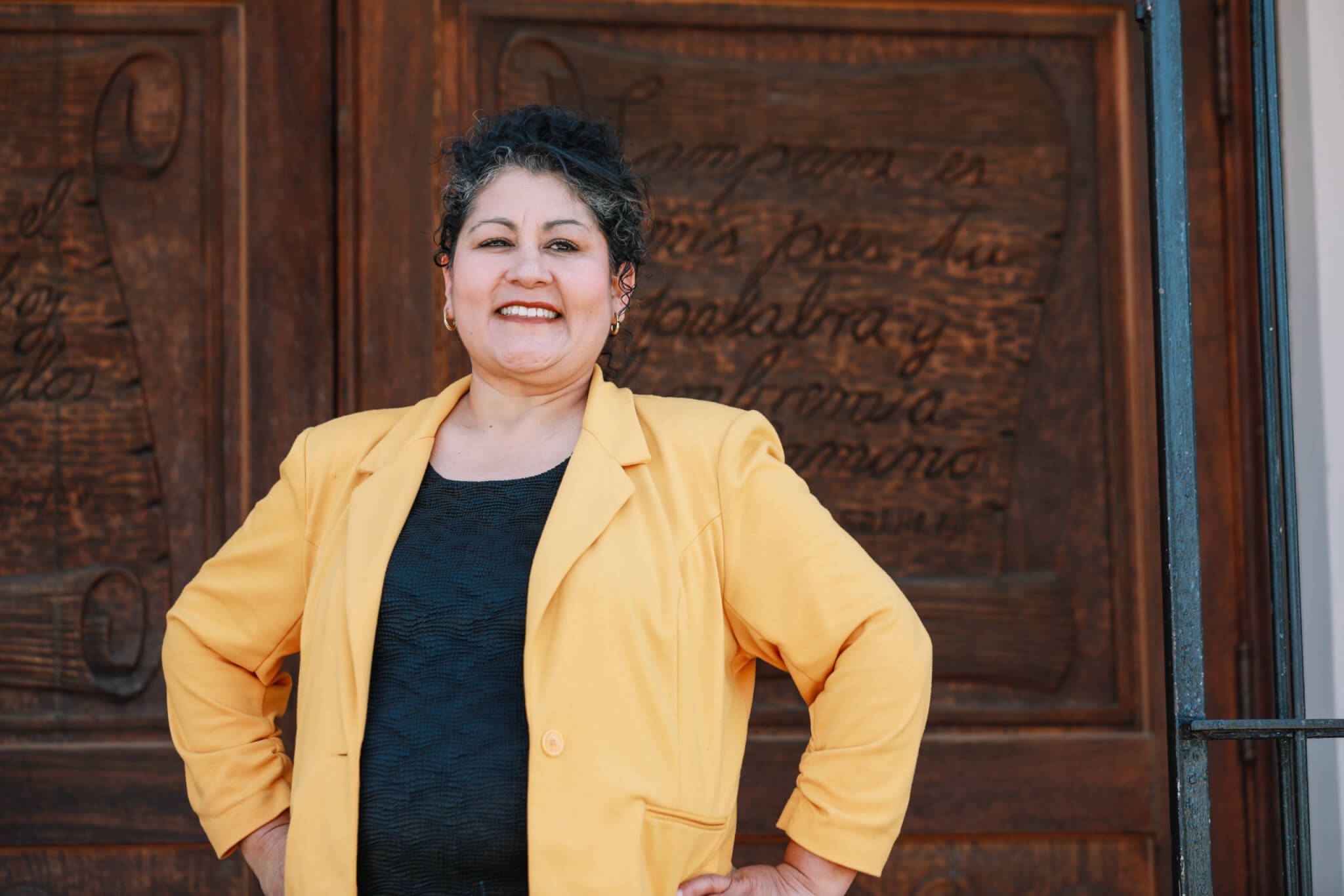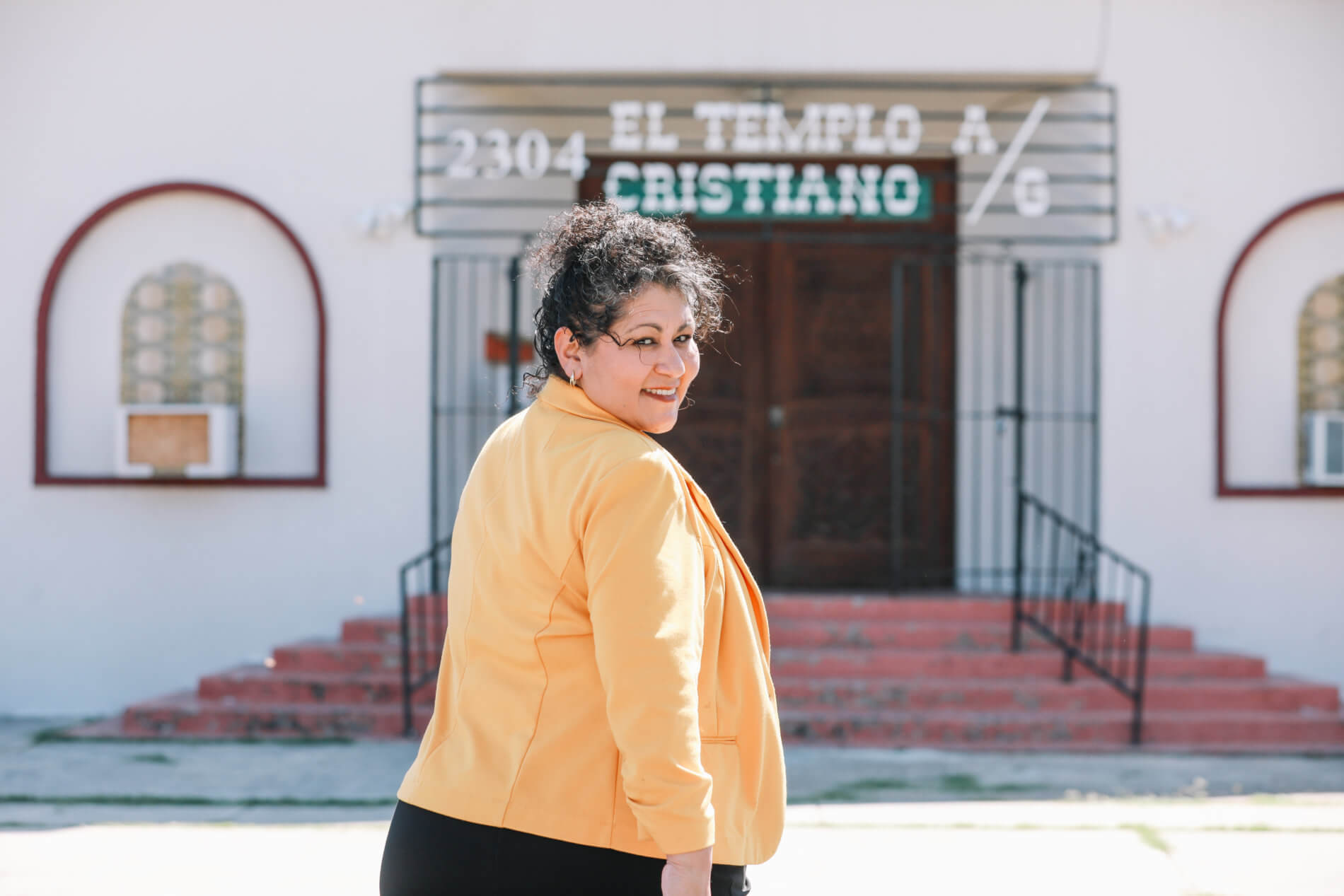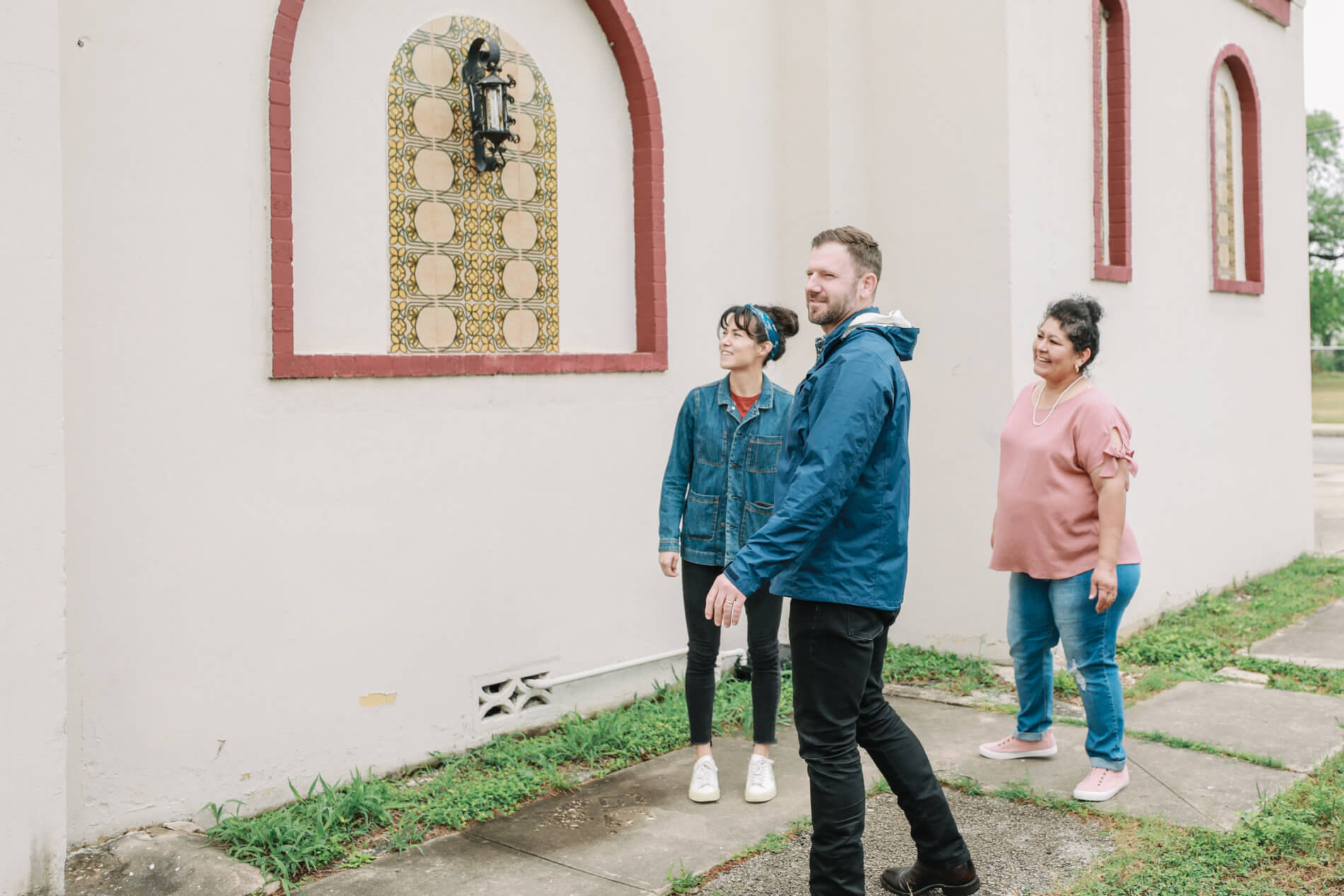

Pastora Norma Quintero describes her corner of Westside San Antonio as a Lenten dish: capirotada.
This traditional Mexican dish, a version of bread pudding, consists of banana, cheese, peanuts, toasted bread, piloncillo (brown sugar), and other ingredients baked together. Each spoonful is a scrumptious medley, crispy on the outside and moist on the inside. Served on Good Friday, it symbolizes the passion of Christ.
“We are a mixture of everything,” Quintero says. “We are a capirotada of backgrounds, cultures, and family makeups.”
Quintero pastors El Templo Cristiano, a historic Assemblies of God (AG) church at the corner of El Paso St. and South Calaveras St. El Templo, which opened in April 1918, is the first registered Spanish-speaking AG congregation in the United States. It is the heart of 78207, one of several San Antonio ZIP codes settled in the last century by non-white families who were excluded from parts of town that were being developed with adequate infrastructure, including access to electricity and clean water and houses that were built to withstand heat and rain. El Templo was founded in a neighborhood that had none of those things.
Neighborhoods shape people. Studies show that one of the most reliable predictors of the outcomes of someone’s overall lifetime is the ZIP code in which they are born.
So, harmful neighborhood development practices leave deep marks that shape families and children for decades to come. Quintero’s ministry takes place in a neighborhood where people struggle against some of the hardest realities imaginable, from drug addiction to prostitution to the daily grind of poverty.
In 2019, Asset Funders Network, a national nonprofit, completed a two-year study in four ZIP codes, including 78207. The study, informed by census data, surveys, and focus groups, found that these four areas have lower than average outcomes in employment, health insurance coverage, income, and education.

Despite these roadblocks, 78207 remains vibrant. It is the very source of San Antonio’s cultural cradle. “In light of our pains, the heartbeat of San Antonio’s culture pulses from these Westside neighborhoods,” says Quintero.
Called to pastor El Templo Cristiano in March of 2007, Norma, her husband Juan, and their three kids (Stephanie Elizabeth, Jon Caleb, and Kayla) moved into the parsonage directly next door to the church, where the Quinteros have spent the last 15 years serving their community.
“There’s no words to describe Pastora Norma,” said Bob Peña (better known as “Bro. Bob”), a lifelong Westsider and 18-year congregant of El Templo Cristiano.
“She pastors strong. When she first came to our church, she was ready to serve the community. She’s a strong lady. She finds time to care for everyone. It takes a special person to accomplish all that she does.”
► WATCH: Pastora Norma talks about
|
In addition to their traditional Sunday services, the church ministers through food drives, cooking meals for community members, and meeting other direct needs of the families and children in their neighborhood.
“When I started going to the church, it wasn’t like it is now with Pastora Norma,” Peña said. “We weren’t as active. She came in and put us to work.”
The path that led Quintero to her vocation and work on the Westside has not always been clear. Her commitment to the church and this work is a constant process with the community always top-of-mind.
As she began her ministry in San Antonio, Quintero wondered what she was doing here. She struggled to reconcile her life experiences with those of her neighbors. What did she have to offer those experiencing addiction? What did she have to offer grandparents raising their grandchildren? What did she have to offer women working in prostitution on her block? But soon, as she spent more time in conversation with them, as she sat across tables and on the steps of her own church, things became clearer.
“At the end of the day, I don’t believe it matters where you come from, what your upbringing was like, or your social status, or your education,” Quintero says. “We are all just people in need of someone to hear us, in need of a genuine friend.”
► WATCH: Pastora Norma reflects on the
|
As a survivor of sexual abuse as a young girl, Quintero realized how much she had in common with the women on her block who were having to make hard decisions to provide for their families. She took time to be present and listen to the countless stories of abuse, and Quintero recognized these women are moms trying to feed their kids and keep a roof over their heads. They are women with hopes and dreams. They are friends—they are family.
“People don’t just want empathy,” Quintero says. “They want to know ‘Hey, I’ve been there too! And we can get through this together.’ That’s what I provide as a pastor here. I want to be a voice for those whose voices aren’t heard. Because I know what it’s like to not be heard.”
She wept recounting the stories of women who had passed away due to drug overdoses or violence. She wept recounting the ways these friends have changed her life and her perspective as a pastor. She wept as she spoke their names and talked about their children.
► WATCH: Pastora Norma speaks of her
|
“I have fallen in love with my Westsiders,” said Quintero. “I think our community has begun to see our church as an oasis of hope—a place where they can find peace.”
Quintero’s ministry is one of being present, building trust, and forging friendships. It is a big table and wide-open arms. Even with very few financial resources and a building in dire need of repair, El Templo Cristiano serves, communes, and listens.
“No matter who you are, we all have the same basic needs. We all have a need for acceptance, to be loved and heard. And that’s what we strive to do here,” Quintero says.
As the neighborhood has changed over the years, Quintero has stayed focused in her ministry of presence.
“Even if I won the lottery, I wouldn’t move from this community,” she laughed. “This is my home.”
While her heart is on the Westside, her gaze is toward the rest of the city. Her journey in this pastorate has been one of laying down assumptions and prejudice to pick up truth and mutuality. She invites San Antonians on that same journey whatever background or ZIP code a person is from.
“I want to invite you to our community,” Quintero says. “Come meet our people. Fall in love with our people! You can’t help but fall in love with our Westsiders. Come see who we are. Come have a cup of coffee. You will be blessed. You will find hope here, too.”
“I think our community has begun to see our church as an oasis of hope—a place where they can find peace.”
| Pastora Norma’s Capirotada INGREDIENTS
INSTRUCTIONS
|
|---|
How did paintings from Vienna end up on the walls at Laity Lodge? Read about a babysitting job that turned into a 30-year friendship.
Fishing isn't always about getting a bite. Even for sixth-graders. Bite into this Outdoor School story on the importance of fishing.
On November 3, the H. E. Butt Foundation hosted a luncheon featuring best-selling author Arthur C. Brooks and his book, Love Your Enemies.